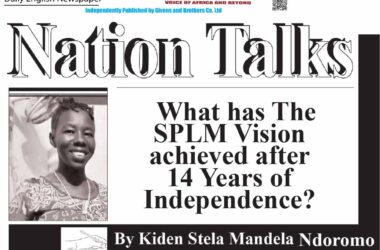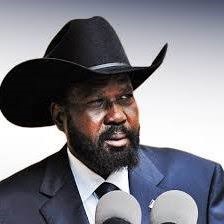By Philip Buda Ladu
President Salva Kiir Mayardit, on Tuesday, assented to the National Election Act 2012 (Amendment) Bill 2023 into law.
“President Kiir signed the National Elections Act, 2012 (Amendment) Act 2023 bill into law on Tuesday,” a statement from the office of the president, reads in part.
Rt. Hon. Speaker of the National Legislative Assembly, Jemma Nunu Kumba, presented the bill to the president.
The speaker described the bill as an important element in the revitalized peace agreement for South Sudan to commence the process of elections.
“The country is now ready to start the preparation for the elections by putting in place the mechanism for parties to do elections. Nunu was quoted as saying:
The Transitional National Legislative Assembly (R-TNLA) passed the National Election Act 2012 (Amendment) Bill 2023, on September 18th, guaranteeing the possibility of conducting elections.
In the bill, the number of Members of Parliament shall be increased to 332 from 250. It also provides for 50 percent of the National Assembly to be elected to represent geographical constituencies.
The bill requires that 35 percent of women members shall be elected on the basis of proportional representation at the national level from the closed women list.
It further stipulates that 15% of lawmakers will be elected based on national segment representation from the party list, youth, and persons with disabilities dockets.
The bill also gives 10% of parliamentary representation to the party list, 3% to the youth, and 2% to persons with disabilities (PwDs). It further stipulates that county commissioners shall be elected.
However, a controversy arose when an article was introduced into the amendment bill, which provides for 5% of MPs (minority groups) to be appointed by the elected president.
The clause in the bill giving the president the prerogative to appoint members of parliament from non-geographical constituencies then provoked disagreement among parties. It sparked a controversy during the passing of the Bill in parliament, prompting opposition legislators to walk out.
This prompted the House speaker, Nunu Kumba, to give the August House a vote, and the bill was passed through a simple majority vote, but that made the SPLM-IO lawmakers walk out in protest saying it was against the principles of democracy.
After the bill was passed, despite the protest, civil society activists and policy analysts also added their voices to the opposition MPs, condemning the 5% given to the president to appoint. But that had no impact, as the bill has been finally assented to by the head of state.




